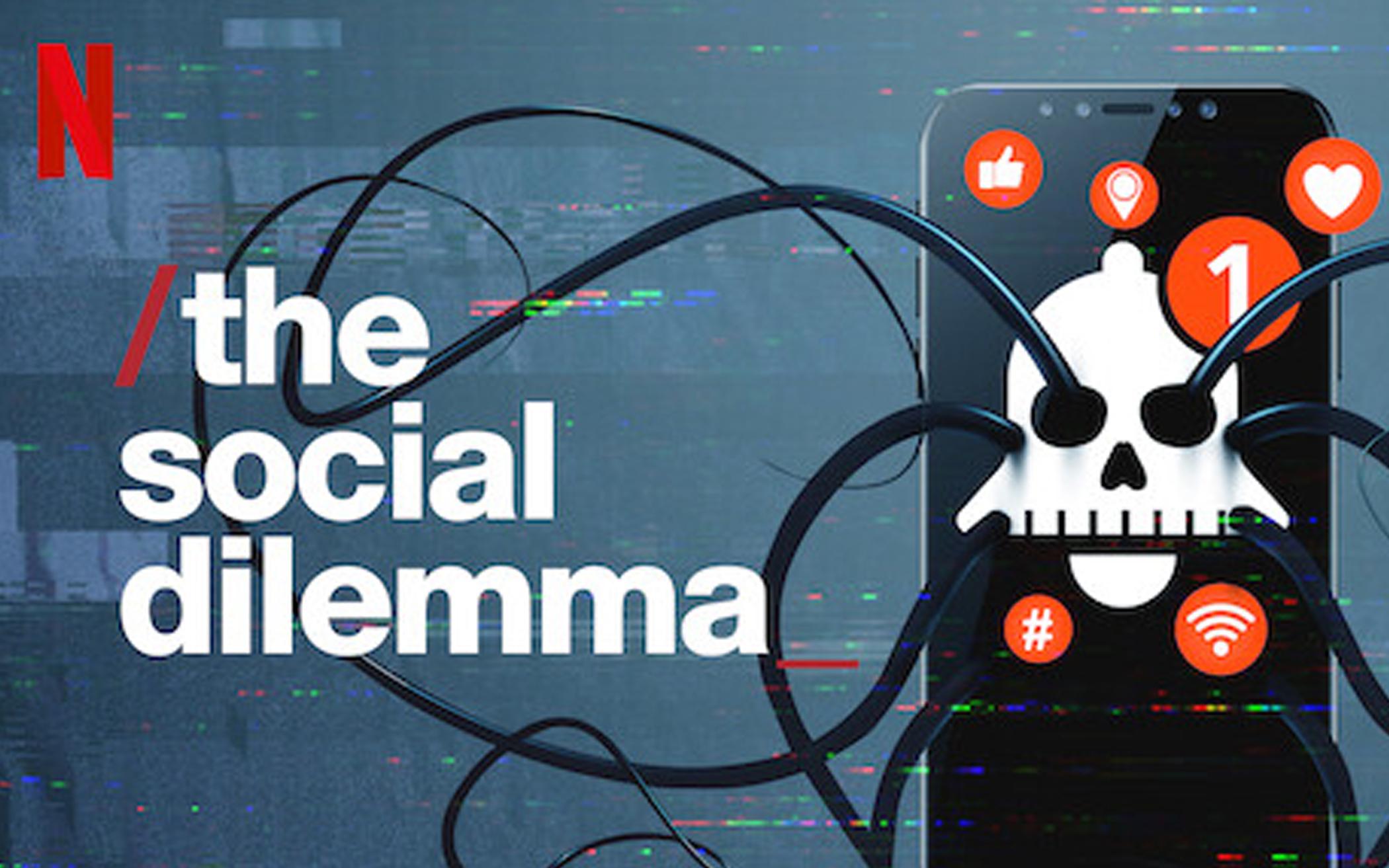Many of us are guilty of refreshing our social media feeds over and over again in hopes of a bigger rush, like pulling the lever on a slot machine. Ironically, even the minds that designed it to be addictive aren’t immune. Tim Kendall, former president of Pinterest, confesses that he found himself ignoring his children to sneak off and feed his social media addiction.
Unlike the slot machine, which demands money, we don’t have to put anything more into the Facebook machine than our time. Right? That misconception is one of many that The Social Dilemma, a new documentary from Netflix, quickly dispels. Some users already know that the information gleaned from watching us, which is sold to advertisers from whom we consume, makes us the product. But more than that, the social media experts and insiders interviewed argue that the tech giants are actively trying to change the way we think.
The interviews are broken up with dramatizations of a young man, Ben (Skyler Gisondo, a regular on Netflix’s Santa Clarita Diet) as he struggles with a social media addiction that sometimes feels like an after-school-special reenactment of drug addiction. While Netflix is never mentioned, nor is its logo ever on the screen after the opening credits, there’s no shaking the fact that a documentary designed to make us skeptical about tech giants comes from a tech giant itself. It’s like a D.A.R.E. class taught by the local dope dealer.
Director Jeff Orlowski talks to many of the people who built and shaped Google, Apple, Twitter, Pinterest, and more. Justin Rosenstein created Facebook’s “like” button. He explains that the feature was created with the good intention of adding positivity to the platform, and the developers never dreamed how hurtful not getting that affirmation would be to some users.
Perhaps most enlightening is the section on fake news. As social media use has increased, so has the division between those who subscribe to opposite political ideologies. And the algorithms designed to keep us clicking down virtual rabbit holes draw us into echo chambers that only confirm what we think we already know.
The need to know we’re right is the real addiction.
“What is truth?” the developers ask, unwittingly echoing Pontius Pilate. Computer software can’t identify truth, so without something bigger than Google to ground us we will always find ourselves at a loss. Remember, Pilate’s question was in response to Jesus’s statement that “everyone who is of the truth listens to my voice” (John 18:37-38).
It’s when the documentary stops asking questions and starts offering solutions that many viewers will take offense to its obvious political bent. Leaving some lingering questions and allowing viewers to simmer in the atmosphere of unease that the rest of the documentary so skillfully develops would have been the wiser move.
However, for all its faults, The Social Dilemma makes us stop and think about the consequences of social media, something unnatural that most of us take in almost as frequently and desperately as oxygen. (Netflix)
About the Author
Trevor Denning is an alumni of Cornerstone University and lives, lifts weights, and spends too much time in his kitchen in Alma, Mich. His first short story collection is St. George Drive and Other Stories.

